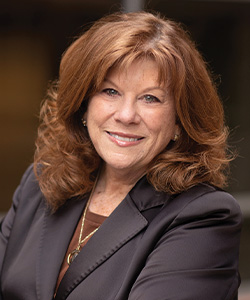Medicare Advantage-The Other Side of the Story

I’ve been getting lots of mail lately and not the kind I like, which is generally gifts or Amazon packages I’ve ordered. For months, letters and postcards have been arriving in my mailbox reminding me to sign up for Medicare and extolling the virtues of Medicare Advantage plans. The trick with having an upcoming “big” birthday is that sometimes the wrong people know about it.
Medicare is federal health insurance for anyone age 65 and older, and some people under 65 with certain disabilities or conditions. For most people, the initial Medicare enrollment period begins three months before turning 65 and ends three months after.
It’s just coincidental that the window for me to sign up for Medicare is near the annual Medicare open enrollment period, which began on Oct. 15 and ends Dec. 7. During this time, Medicare members can review their options and make changes to their coverage, which will take effect on Jan. 1, 2025.
Medicare coverage has several “parts.” Original Medicare has two parts – Part A (hospital insurance) and Part B (medical insurance), and people typically pay a portion of the costs for covered services as they get them.
Part D helps cover the cost of prescription drugs (including many recommended shots or vaccines). People can join a Medicare drug plan run by private insurance companies that follow rules set by Medicare.
Medicare Advantage plans, also known as Part C, are alternatives to original Medicare and are administered by private insurance companies. These “bundled” plans include Part A, Part B and usually Part D. In the U.S., Medicare Advantage enrollment in 2024 now totals 33 million, or 54% of all eligible beneficiaries. Two years ago, 34% of our patients eligible for Medicare chose a Medicare Advantage plan. Today, that number is 48%.
Enrollment in Medicare Advantage plans has grown rapidly partly because most plans charge no premium (other than the Part B premium) and offer extra benefits not available in original Medicare such as out-of-pocket maximums, dental, vision or hearing coverage and fitness benefits.
In recent years, there have been growing concerns and inquiries into Medicare Advantage plans and their pitfalls for patients, providers and health systems. So much so that some hospitals, health systems, and skilled nursing homes have ended their contracts with Medicare Advantage plans or are considering it. Out of necessity, Bothwell Regional Health Center is exploring our continued relationship with some Medicare Advantage plans.
Among the most commonly cited reasons for this consideration are needing approval from the plan before receiving a service (prior authorization), which can delay care for up to two weeks. Additionally, more requests for services are denied upfront. As a result, you may end up paying for services out of pocket or worse, decide to go without care. Medicare Advantage plan insurers reimburse at a lower rate than Medicare and are slow to send payments. This is especially troubling since Medicare rates only cover 79 percent of the cost of providing services.
Medicare Advantage plans were originally designed to offer patients more choice and flexibility, yet from a provider’s perspective, they have evolved into a system rife with inefficiencies and inequities. The plans prioritize profit over patient care, leaving hospitals like ours to shoulder the consequences. Denied claims and delayed payments mean we’re spending more time and resources on bureaucracy instead of patient care. This is a fundamental misalignment of priorities.
It’s time for policymakers to take a hard look at the impact of Medicare Advantage plans on rural hospitals and the communities we serve. We need reforms that ensure these plans pay providers fairly, reduce administrative burdens, and prioritize timely payments.
As you can probably surmise, I will not be signing up for a Medicare Advantage plan when my birthday rolls around. I want the decisions about my health care to stay between me and my physician.
Lori Wightman has been Bothwell Regional Health Center’s Chief Executive Officer since June 2019. As CEO, she is responsible for the operations of the 24/7 hospital, as well as Bothwell’s 20-plus outpatient clinics while leading strategic development initiatives required for long-term success. She is an active member of Sedalia Business Women and serves on the board of the Missouri Hospital Association. In 2025, she becomes Medicare eligible and wants others to know another side of the story about Medicare Advantage plans.
